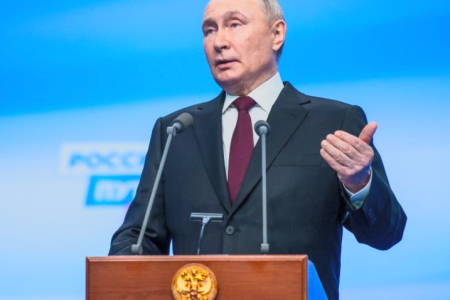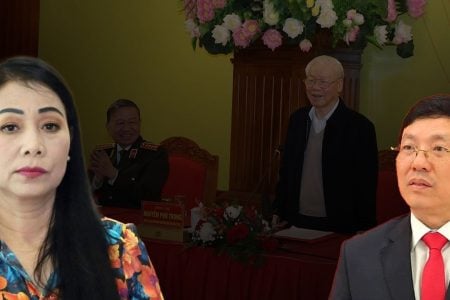
In a phone call on October 26, British Prime Minister Boris Johnson recommended that the Vietnamese government commit to reducing greenhouse gas emissions to zero by 2050 and continue to take steps to phase out coal electricity as well as end deforestation by 2030.
The phone conversation between UK PM Boris Johnson and his Vietnamese counterpart Pham Minh Chinh took place on the eve of the Global Climate Summit (COP26) which will be held since early November in Glasgow, England.
Vietnamese Prime Minister Pham Minh Chinh will lead the Vietnamese delegation to attend the conference.
According to the British government’s press release, the two sides discussed Vietnam’s leading role in the region in tackling climate change.
The two leaders noted the increasingly strong relationship between the UK and Vietnam and pledged to further deepen their strategic partnership, including in defense and security.
Vietnamese government leaders welcomed the UK’s recent support for vaccines and medical equipment for the fight against Covid-19.
Johnson expressed his wish to welcome Vietnam to Glasgow to attend COP26 and jointly promote global action on climate change.
The UK has committed to reducing greenhouse gas emissions to zero by 2050.
Boris Johnson has set a target that by 2035, all of the UK’s electricity will come from clean sources.
The UK is the world leader in offshore wind power. Britain currently has about 10GW of capacity, which the government has promised to quadruple by 2030.
Cars and taxis accounted for 16% of UK emissions in 2019 and the government says no new petrol and diesel cars will be sold from 2030.
The UK government says it will cut emissions from manufacturing by about two-thirds between 2018 and 2035.
Vietnam “addicted” to coal power plants?
While the general trend around the world is to abandon coal-fired power because they destroy the environment, Vietnam does not seem to have taken any active steps to participate in this process.
Besides the old coal power plants, Vietnam is continuing to build new ones.

The controversial coal power plant project II in Vung Ang will finally officially start construction in December 2021, according to Reuters.
Climate change: Greenhouse gas concentrations hit new highs in 2020
Electricity output from Vietnam’s coal power plants could be doubled by 2030, according to a draft development strategy submitted to PM Chinh for approval in mid-October.
Observers say that this draft shows that Vietnam is certain to continue to rely mainly on coal power for economic development, at a time when financiers and insurance companies are refusing to support the construction of new coal power projects because of their devastating impact on climate change.
In mid-October, Chinh said that Vietnam would increase the share of renewable energy in the context of declining fossil fuel reserves. “As a developing country with many difficulties, Vietnam is building a harmonized and balanced roadmap for sustainable energy transition, climate change adaptation, and carbon emission reduction,” Chinh said.
Mr. Pham Minh Chinh’s ‘harmonious‘ roadmap is that by 2030, coal power will account for 31.4%. While electricity from natural gas only accounts for 22.4%, hydropower 20%, renewable energy 25.7%
In an article titled “Is Vietnam addicted to coal power?,” the South China Morning Post said that Vietnam’s coal power plants are mainly funded by China, Japan, South Korea, and a few from America.
Electricity output from coal power plants currently meets 50% of electricity demand in Vietnam. Currently, only about 12% of electricity in Vietnam is produced from renewable energy sources such as solar and wind.
Not only causing serious pollution, coal power plants in Vietnam are believed to have caused 4,359 premature deaths in 2017, according to a 2020 study on air quality and health by NGOs. Hanoi-based sustainability government GreenID – a number the organization expects could increase with more coal power plants
The two sides agreed to continue working together to tackle the global pandemic and increase trade and investment between the two countries, based on the UK-Vietnam Free Trade Agreement and the plan to join the UK’s CPTPP trade bloc.
British PM Boris Johnson expressed his wish to welcome Vietnam to Glasgow to attend COP26 and jointly promote global action on climate change.
The UK has committed to reducing greenhouse gas emissions to zero by 2050.
Thoibao.de (Translated)

























